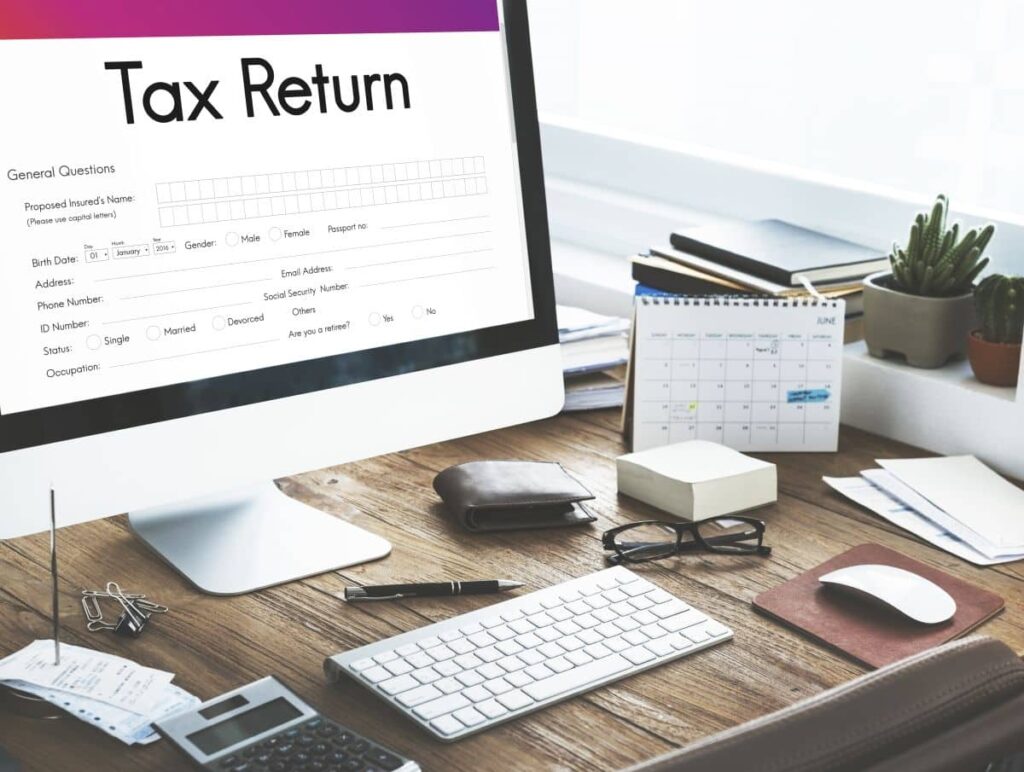Expert Advice: Key Changes In Taxation Law
Taxation legislation is always evolving, and it can be tough to stay up. In this blog post, we will present an overview of some of the most significant changes that have occurred in recent years. We will also advise you on how to stay in compliance with the most recent tax rules.
If you're anything like the majority of people, your mind is racing after hearing about the tax code changes. Especially if you work for yourself. Don't be concerned!
We have a team of professionals who can help you make sense of it all and navigate the changes that may affect you individually. In this post, we'll go over several major changes that may affect you, so keep reading for more details!
Are you impacted by tax legislation changes? If so, it's critical to keep up with what's new. In this blog article, we'll offer you a quick rundown of some significant recent developments. So, whether you're a business owner or a regular taxpayer, keep reading!
Taxation, as we all know, is a tough subject. The laws are always evolving, and it can be tough to stay up. However, you should be informed of a few major changes in taxation legislation this year. We will detail these changes in this blog post and offer expert advice on how to best prepare for them.
If you're like most business owners, you're undoubtedly wondering what the new tax law's significant changes imply for your bottom line. In this blog article, we'll go over some of the most significant changes and offer expert advice on how to navigate the best. So take a seat back, relax, and allow us to assist you in making sense of it all!
Are you planning your tax return and asking what changes to the law have occurred this year? You're not by yourself. Every year, tax regulations change, and it can be difficult to stay on top of what is expected of you.
This year, there are some significant changes to be aware of. So, before you file, read this blog post to learn about the major changes. Understanding the new laws can help you avoid crucial mistakes and verify that your tax return is properly prepared.
We worked with a taxes specialist to help people comprehend the latest changes in taxation legislation.
This essay will go through some of the major developments that may have an impact on you and your finances. As always, please seek the advice of an accountant or tax consultant to ensure that you make the best decisions for your specific case.
Are you perplexed by the new changes in tax law? You're not by yourself. Many people are confused about what the new legislation means for them and their businesses. We will provide some expert advice on handling these changes in this blog article.
We'll also give you some pointers on how to prepare for tax season next year. So, whether you're a business owner or just want to remain up to date on the newest tax news, keep reading for our helpful hints!
This blog article is intended for taxpayers who want to stay up to date on the newest changes in tax legislation. The information provided will assist you in comprehending what has changed and how it may affect you. Please consult your accountant or tax consultant if you have any specific questions.
This year, almost everyone will see a change in federal taxation legislation. The most important thing to remember is to plan ahead of time and understand how these changes may affect you come tax season. Here are five important things to remember as you prepare for the new year, according to experts.
Thank you for your time!
Why Are Taxes Collected In The First Place?
First things first: why do we have taxes in the first place? Then we can discuss the goals of tax reform and what we want to accomplish with it.
Taxes are like plumbing. They do not constitute an end in and of themselves. Rather, they are a method for funding the government and resourcing joint or public activity for the common good, as opposed to individualized, private, or market action. Therefore, the existence of taxation may be directly attributed to the social and political organization that has been established for the sake of the common good.
Writing Adam Smith posed the question of why we even had taxes in existence 250 years ago. Adam Smith is widely regarded as the pioneer of modern economic thought. On the other hand, the fact that he advocated for the funding of the government through taxation is not as widely known.
According to him, only taxes could offer "that sure, steady, and permanent revenue which can alone give security and dignity to the government... for a great nation." He said that taxes were the only thing that could guarantee "that sure, steady, and permanent revenue." Therefore, there is a demand for taxes because:
Defraying the necessary expenses of any big and civilized state...this expense must, the greater part of it, be defrayed by taxes of one kind or another; the people giving a part of their private revenue to make up a public revenue to the sovereign or the Commonwealth. Defraying the necessary expenses of any great and civilized state...this expense must, the greater part of it, be defrayed by taxes of one kind or another.
In point of fact, Adam Smith defined political economy as the study of the relationship between private and public wealth:
Political economy, when viewed as a branch of the science of a statesman or legislator, offers two separate objectives: first, to provide a bountiful revenue or subsistence for the people, or more properly, to enable them to create such a revenue or subsistence for themselves; and secondly, to furnish the state or commonwealth with a revenue sufficient for the public services. It suggests doing so in a way that benefits both the people and the sovereign.
Adam Smith was ahead of his time in having a vision for how the government should be financed. In this scenario, he also presented the idea of 'public goods,' which are responsibilities that ought to be financed through taxation. The idea that people should pay taxes so that the government can provide for its citizens is obviously not new, and it is possible that its roots will reach further back in time.
However, Adam Smith made the observation that there are certain public goods that are "very beneficial to a great society," but that it is not profitable for any one individual to invest enough money in them and that these commodities should be given to everyone.
For instance, he included education for children as part of this category; he believed that for the sake of the common good, the government ought to pay for children's education. This was intrinsically related to his idea of a market economy, which would be sustainable over the course of a longer period of time.
Taxation and Constitutional Government
After 250 years, we are still operating within the paradigm of the 'tax state,' but the legitimacy of government has become rooted in democratic institutions as opposed to inheritance or divine right.
The political-economic concepts that were created in Britain, Europe, and the United States concerning the relationship between taxes and politics quickly spread around the world, including Australia, and quickly gained traction. As an illustration, the first paragraph of the statement that was presented to the mining inspectors regarding the license fees that they were required to pay during the Eureka Stockade Rebellion in the year 1854 in Victoria read as follows:
That it is an inalienable right of every person to have a voice in crafting the laws that he is called upon to obey, and that taxation without representation is a form of oppression.
It is a fundamental principle in Australia that the Parliament has supremacy in deciding the object, shape, and weight of taxation. This authority rests with the Parliament. In the case of Osborne v. Cth., for instance, the High Court issued a decision regarding the progressive nature of the federal land tax. The Court came to the conclusion that it does not fall under its purview to evaluate whether or not a tax is legal depending on how burdensome or onerous the tax is. Barton J said:
Even if we assume that the taxation that it imposes is severe, as it is alleged to be, it is not the function of the Court to say that severe taxation on landed interests will prevent residents from owning large areas or prevent landholders from residing outside of Australia, or prevent absentees from holding land within the Commonwealth...
Even if such designs did exist, they would not change the construction of an Act or make it a less effective exercise of the power to tax. They could be the driving force behind it or even the end goal. Both of these are completely unrelated to us in every way.
Given that, in some situations, a substantial tax may, through the pressure of its harshness, destroy an industry that a State alone has the authority to manage or force holders of big landed estates to sell them or to remain in this nation when they would rather live elsewhere, these are concerns of tax policy or wisdom that belong to the people, directly or via their representatives, and not to the Court.
This is the case even if the tax is so onerous and finely calibrated that it gives the impression that its primary purpose is to bring about the anticipated outcomes. Concerns regarding the misuse of power are matters for the general population and Parliament.
It is essential to keep in mind that the tax system is an integral component of a larger democratic government structure whenever we entertain the idea of attempting to alter the tax system. We forget that politics is a part of the point when it appears as though politics is getting in the way. The existence of taxes can be directly attributed to politics.
It is also essential to keep in mind that the Constitution provides the Parliament of the Commonwealth with authority to impose any sort of tax. The Parliament has the ability to define tax policy for the benefit of the nation thanks to the grants and other authorities granted to it by the Constitution.
At the same time, the Constitution is the foundation upon which our federal organization is built. As a result, we have an obligation to make certain that the governments of the states and territories are fully democratic, adequately funded, and answerable to the citizens and taxpayers of those jurisdictions.
Recently, Cheryl Saunders and Michael Crommelin have brought attention to the significance of this issue; federation and tax reform should improve our federal democracy.
What are the Most Recent Changes to the Tax Code?

According to the Australian Taxation Office, the Treasury Department is in charge of determining all aspects of tax legislation. The ATO is responsible for carrying out the legislation that has been passed by the Parliament.
To a large extent, it is a process that takes place within the Treasury and elsewhere in the government to examine the system, offer recommendations, and suggest changes to the law. Therefore, our function is to offer guidance on how we might implement a proposed new law, but we do not draft or advocate for the enactment of such laws in any way, "he went into greater detail.
Moving forward, one of the most significant alterations that will be made to the taxes system is going to be adjustments to the capital gains tax.
First, there would be a change to the "primary residence exemption for foreign residents," which, according to ATO, will have an effect on the exemptions that homeowners may claim and the CGT that they are required to pay when they sell their homes.
Your residency status is treated differently than your citizenship status and so on when it comes to the tax system. If you now reside in Australia with a home and later decide to relocate elsewhere for a period of time, it is important for investors to take the following into consideration. After that, you decide to sell the home; after doing so, you will no longer be able to claim the main residence exemption in the future.
You do not need to pay capital gains tax (CGT) on your place of residence at this time because of the main residence exemption, which applies to most residences. However, the regulations have been changed such that if you have permanently relocated overseas, which means that you are no longer considered a resident for tax purposes, you will now be required to pay capital gains tax on that property.
ATO stated that the majority of people will have until the 30th of June to sell their properties and still be eligible to take advantage of the exemption if they are thinking about migrating permanently overseas.
Low and Middle-Income Tax Offset
If your annual income is between $37,001 and $126,000, you are eligible for the Low and Middle-Income Tax Offset (LMITO), which is a tax offset that is automatically applied.
You will receive a tax offset of between $255 and $1,080, the exact amount of which is determined by your taxable income as well as the amount of tax that you have already paid. The full offset is $1,080 per year for individuals who are not married and up to $2,160 for married couples who have two incomes.
By implementing modifications to the income tax levels and the low-income tax offset beginning on July 1, 2022, the federal government has ensured that low-income taxpayers will continue to receive the benefits of the LMITO.
Both the highest level of the 19 percent tax rate, which now sits at $37,000, and the maximum amount of the low-income tax offset, which currently sits at $445, will be raised to a combined total of $700.
Low-Income Tax Offset
The Low Income Tax Offset (LITO), which is worth $700, is added to the LMITO, which is worth $18,200, to reach the tax-free level. As a result, taxpayers in Australia will not be required to pay income tax on earnings up to $22,801 for the 2020-21 fiscal year, nor will they be subject to the Medicare levy on earnings in excess of that amount.
Those Australians who have an annual household income of less than $66,667 will be eligible for a portion of the LITO. For instance, if your annual wages do not exceed $37,500, you are eligible for the maximum LITO payment of $700. When you submit your income tax return, this tax offset will be applied to your account automatically.
It is essential to be aware that the LITO is a non-refundable tax offset; this means that it can only be used to reduce the amount of income tax that you are responsible for paying. You are not eligible to receive a tax refund with it, nor can you use it to pay your Medicare levy.
Tax deductions and tax offsets are two very separate things. Both of these will result in a decrease in the amount of personal income tax that you are required to pay. On the other hand, tax deductions are expenses related to your employment that are deducted from your gross earnings before taxes are owed. On the other hand, tax offsets are reductions in the amount of tax that you owe that occur after taxes have been computed.
Personal Income Tax Thresholds
In the Federal Budget for 2020-21, all of the components of stage 2 of the tax reforms that took effect in 2018 and 2019 were brought forward to the 2020-21 financial year. These changes were originally scheduled to take effect in the 2022-23 fiscal year.
Beginning on July 1st, 2020
- The highest income level that falls into the 32.5% tax band has seen its threshold increase from $90,000 to $120,000.
- The highest income level that qualifies for the 19 percent tax bracket is now $45,000 rather than $37,000.
The marginal tax rates of 32.5 and 37 percent will be eliminated entirely as a result of the implementation of stage 3 of the permanent tax cuts in the fiscal year 2024–2025. At that time, the tax rate will be reduced to 30 percent for taxable incomes starting at $45,001 and going all the way up to $200,000. On the other hand, the tax rate of 45% will continue to apply to incomes that are greater than $200,000.
Children, holidaymakers, and those living in other countries are subject to different tax rates.
The streamlined tax system that will arise from the completion of the improved Personal Income Tax Plan in 2024-2025 will have only three different tax brackets. Individual taxpayers in Australia with taxable incomes between $45,000 and $200,000 will be subject to a marginal tax rate of 30%.
Other major Changes

ATO reminded investors, in addition to the changes in capital gains tax, of the change in depreciation, which was mandated in 2017 but is still widely neglected by homeowners. This change was legislated, but ATO noted that investors had forgotten about it.
According to the new regulation, individuals who have purchased previously owned residences are not permitted to claim the depreciation on the equipment that was included in the transaction. This applies to items like water heaters and dishwashers. Instead, they will merely be included in the cost base for the CGT calculation.
ATO also brought up the modifications concerning travel charges, which were likewise implemented approximately three years ago. These modifications came about almost three years ago.
Your trips to your rental property, whether to check it or collect rent, are no longer deductible business expenses. This means that the expense is no longer tax-deductible.
Moving forward, according to ATO, a significant adjustment to the method by which unoccupied land is taxed is scheduled to be implemented in the month of July.
When the new regulation goes into effect, it will no longer be possible for owners of a piece of land who intend to construct a rental home to deduct any of the costs associated with that land.
According to the expert from the ATO, the move will not affect persons who work in settings related to primary production.
ATO recommended to investors that they get in touch with their accountants in order to devise a plan that would assist them in navigating the change in taxes legislation that is going to occur in the future, which will eventually enable them to maximize their earning potential over the long run.
Tax FAQs
1. Can I deduct the costs paid to my tax agent?
Your tax return, any revisions to it, and the overall management of your tax affairs can all qualify for tax deductions if they are prepared by a registered tax agent.
You may also deduct the cost of travelling to and from your registered tax agent; however, if you use the cost-per-kilometre approach, you can deduct a maximum of 5,000 kilometres for each individual income tax return. Only individuals who are recognized by the government as authorized to act as tax preparers are permitted by law to accept compensation for their services.
2. Can you explain what a credit score is?
Your credit score, in a nutshell, is a number that helps financial companies, such as banks and lending institutions, evaluate how reliable you are likely to be in the future in terms of paying off future debts. Your score will be ranked on a scale ranging from one to one thousand (or sometimes 1-1200, depending on the credit agency you use to measure the score).
The higher your credit score is, the better it is, because it gives lending institutions, banking institutions, insurance companies, and service providers more opportunities to provide you a better deal. If you have a poor score, organizations may be hesitant to do business with you or may charge you more fees if they do decide to work with you.
3. Does everyone have a record of their past credit activity?
Credit history is established for virtually everyone who has ever held a credit card in their name, applied for a loan, or taken out a line of credit in their name. To apply for a financial product, you must be at least 18 years old; however, if you are under the age of around 20, there is a possibility that you have not had the time to establish a credit history.
4. The news that I have a low credit score came as a complete surprise to me. How did it happen?
First and foremost, try not to freak out. There are numerous causes that could result in a low credit score.
In the event that you feel the score to be inaccurate:
- To begin, contact the credit agency that was responsible for generating the score to verify that they have the correct information for you in their files.
- Next, verify with your banking institution that they are utilizing the proper data as well and that you have not been the target of any fraudulent financial activity.
- If all of these things are in order, but your credit score is still low, then it is likely due to one or more of the reasons listed below:
- Late or nonpayment of bills, which might also mean not paying them at all.
- Failure to make required payments on a loan
- Submitting an excessive number of applications for credit
- Defaulting a loan
- Losing your property to the foreclosure process
- Any court judgment regarding financial payments
5. What can I do to improve my credit score and get a better interest rate?
The good news is that there are a significant number of things you can do to increase your credit score, some of which are as follows:
- Make sure that the information contained in your credit file is accurate and up to date
- maintaining prompt payment of all loans and bills
- You can demonstrate to potential lenders that you are capable of handling loans and repayments by successfully managing a small loan or credit card.
- Keeping any credit cards that aren't currently being utilized
- avoiding applying for an excessive number of credit cards
6. For which kind of financial services is a good credit score required?
Your chances of being approved for a variety of financial products, such as a mortgage, personal loan, credit line, or credit card, rise when you have a better credit score. But that's not the end of it. It also increases the likelihood that you will be provided with terms that are more favourable to you.
The higher your credit score, the more desirable you will be to a variety of lending institutions. This means that the chances of you being able to secure the greatest possible offer increase as your score rises.




















